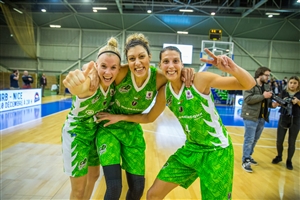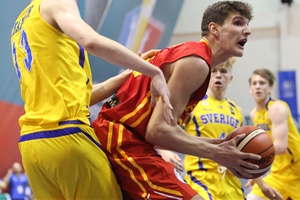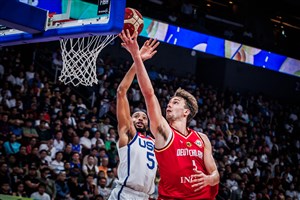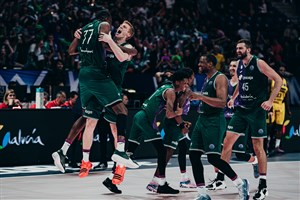
Will we soon see China have a naturalized player?
MANILA (Enzo Flojo's Asia on my Mind) - China have often been given the moniker "Walking Great Wall" and for good reason, too. The Chinese, of course, are usually among the tallest teams not just in Asia but also at the world level, what with giants like Yao Ming and Wang Zhizhi patrolling the paint once upon a time.
That moniker, however, also tends to extend to the team's indomitability. China are, by far, the most successful Asian men's basketball team. They have ruled the FIBA Asia Championship in 15 out of 20 editions since 1975 and have also dominated the quadrennial Asian Games, winning seven of 11 possible gold medals since 1974. China have also not missed representing Asia in the Olympic Games since 1976, and they have played in all but two FIBA Basketball World Cups since 1978.
By all intents and purposes, their recent defeats notwithstanding, China remain untouchable in Asia.
All that, however, is set to change this year when Australia and New Zealand join the FIBA Asia Cup 2017 and the Asian qualifiers for the FIBA Basketball World Cup 2019. The Boomers and Tall Blacks enter an arena where China have been crowded at the top in recent years. Iran are a bona fide West Asian powerhouse who have won three of the last five Asian titles, while the Philippines keep on rising. In addition, teams like Korea, Lebanon and Japan continue to lurk as legitimate threats. Heck, even India - far from traditional hoops titans - have inflicted a couple of stinging defeats on the Chinese these past few years. The rest of the continent have caught up with the Walking Great Wall, and it will be under even greater siege with the Aussies and Kiwis banging on the gates.
It's not that China have been depleted of talent. On the contrary, a pair of very promising young big men (Zhou Qi and Wang Zhelin) were drafted in the NBA just last year - a first since 2007 when Yi was selected in the first round. Rather, it's more a matter of how other teams in Asia have become more competitive - in no small part because of having naturalized players.
This begs an interesting question - will China also resort to having their own naturalized player in the very near future? Will China go the way of the Philippines, Qatar, Chinese Taipei, Lebanon and Jordan by signing up a naturalized player to plug the holes in their rosters? Given how Australia and New Zealand are among the best teams outside of Europe and how a handful of Asian sides continue to be strong contenders, China may need to revisit their pool of talent.
Of course, one may reason that China are not in dire need of a naturalized player, especially with more talented big men like Hu Jinqiu, Fan Ziming, Taruike Jianiyou and Zhu Rongzhen coming up the ranks, but one may also look at the country’s depth - or lack thereof - at the wings as a possible place where a naturalized player may flourish.
Let's look at the players who have most recently played as wingmen for Team Dragon.At the FIBA Asia Championship 2015, they had Zhai Xiaochuan, Zhou Peng, Li Gen and Ding Yanyuhang as their main players at the 2 and 3 positions. They were relatively effective, though not exactly dominant, against their Asian opponents.
Fast-forward to the Rio Olympics 2016, however, and that same group of wingmen struggled big time against the world’s elite. Their collective efficiency rating in 2015 was 33.3, but that dropped to a disappointing 13.2 in 2016. Against possibly the likes of Joe Ingles, Patty Mills, Tom Abercrombie and Corey Webster, not even China’s size will get them far if they cannot match up well at the wings.
Currently, China are seeing some world class small forwards and shooting guards ply their trade in the CBA - guys like Jimmer Fredette, MarShon Brooks and Jamaal Franklin - players who have never played in any FIBA tournament and who, if China wanted, can help boost the country’s chances of continued dominance in Asia and perhaps even help lift their play on the world level.
To be quite honest, it would be nothing short of a shock to see China naturalize any player for their national team, but objectively speaking, it may be the most viable way for them to keep in step with the significant rise in competition that is sure to take over Asian basketball this year and beyond.Enzo Flojo
FIBA
FIBA's columnists write on a wide range of topics relating to basketball that are of interest to them. The opinions they express are their own and in no way reflect those of FIBA.
FIBA takes no responsibility and gives no guarantees, warranties or representations, implied or otherwise, for the content or accuracy of the content and opinion expressed in the above article.

















